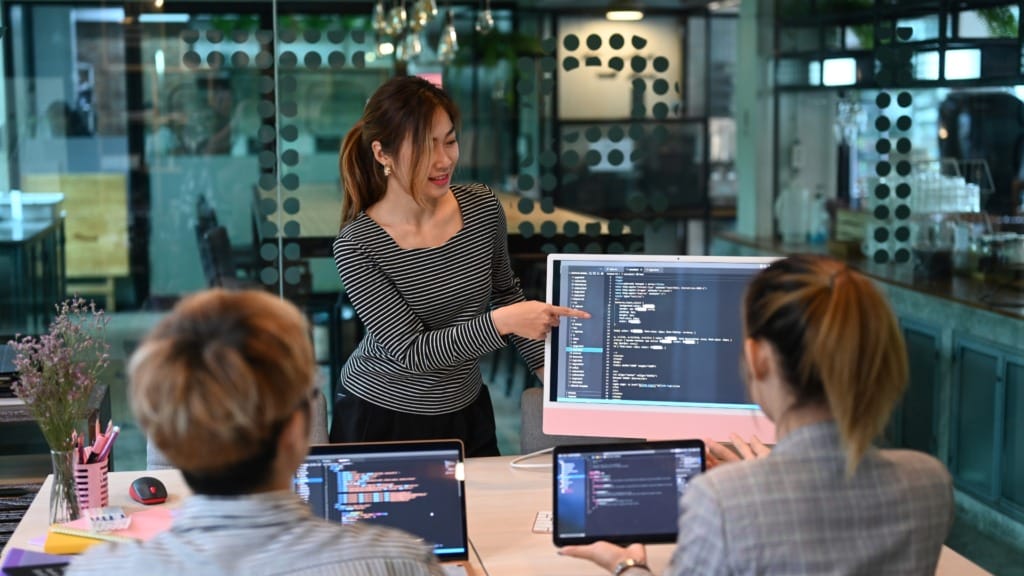Only half of Singaporeans willing to reskill for the AI era, lagging behind regional peers
Only 53% of Singaporeans are willing to reskill for AI, according to the Decoding Global Talent 2024 report, highlighting key challenges.

Singapore’s workforce may be falling behind in the global push towards AI adoption, as revealed by the Decoding Global Talent 2024 report. The study highlights that only 53% of Singaporean workers are willing to reskill to stay relevant in the age of Generative AI (GenAI), a figure notably lower than Southeast Asia’s regional average of 63%.
Table Of Content
The findings come from a global study conducted by Boston Consulting Group (BCG), The Network, Jobstreet by SEEK, and The Stepstone Group, surveying over 150,000 workers across 188 countries.
Despite AI’s transformative potential, Singaporeans show greater reluctance to reskill, with 41% saying they would only do so if absolutely necessary. This contrasts sharply with the 32% regional average, signalling a more cautious approach in Singapore to embracing AI-related changes.
Limited adoption and understanding of GenAI
The report indicates that while 60% of Singaporean workers have experimented with GenAI in personal or professional settings, only 43% use it monthly—similar to the Southeast Asia average of 44%. Singapore’s National AI Strategy (NAIS 2.0) has supported a relatively high adoption rate, but a significant 40% of the workforce remains unfamiliar with GenAI’s capabilities.
Although many workers recognise GenAI’s potential to reduce repetitive tasks (60%) and improve work quality (45%), fewer see its value in meeting deadlines and enhancing efficiency (32%), compared to 44% in Southeast Asia and 45% globally.
This lukewarm engagement highlights the need for stronger efforts to integrate GenAI into daily work practices and better support from employers to drive adoption and productivity.
Concerns about GenAI’s impact on jobs

While Singaporeans are slow to reskill, concerns about AI’s impact on employment persist. Only 19% of workers believe GenAI will not affect their current roles. Meanwhile, 22% expect significant changes or the elimination of jobs, a figure slightly below the regional average of 29%.
Despite these concerns, challenges in utilising GenAI hinder greater adoption. A significant 37% of Singaporean workers cite difficulties in creating effective prompts and a lack of necessary skills as major obstacles, compared to 33% regionally and 30% globally.
Reskilling priorities miss the mark
Singaporean workers tend to prioritise traditional skills over advanced digital skills. Analytical abilities (46%), functional job-specific expertise (35%), and project management (27%) rank highest on their reskilling agendas. In contrast, advanced digital skills like AI development (22%) and staying updated with technological trends (19%) are lower priorities.
This misalignment suggests a lack of urgency in preparing for the demands of an AI-driven economy, potentially widening the skills gap between Singapore and its neighbours.
Employers urged to take the lead
“AI’s impact is undeniable, and it is essential for both individuals and employers in Singapore to start taking proactive steps in reskilling and future-proofing our workforce,” said Vic Sithasanan, Acting Managing Director of Jobstreet by SEEK in Singapore.
He added, “Employers play a crucial role in bridging this gap by offering clear guidance and accessible learning opportunities, as aligned with Singapore’s Smart Nation 2.0 strategy. Without this support, local talent will struggle to adapt professionally in the evolving AI landscape.”
The report notes that 51% of Singaporean workers need clearer guidance on essential skills, 46% call for better learning resources, and 36% highlight the need for employer support in adopting GenAI in the workplace.
By addressing these gaps, Singaporean employers can help the workforce navigate the challenges of the AI revolution, ensuring they remain competitive in an increasingly AI-driven world.
















